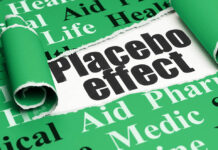Mental Health Survival Kit, Chapter 5: Survival Kit for Young Psychiatrists in a Sick...
Inaction by the medical profession regarding the prescribing of psychiatric drugs to children and adolescents is a form of child abuse and neglect, and institutional betrayal.
Faith Lost
I came through integrative medicine as a stepping-stone to holistic care. I learned about supplements and herbs that could be added on to medications or used on their own to change mood and enhance wellness. I practiced in this way for a couple of years, prescribing and strategically augmenting, before understanding that true personalized, lifestyle medicine obviates the need for medication. It gets to the root. I no longer wanted to enhance psychotropics; I wanted to eliminate them.
“But It’s Just the Way Things Are”
My sabattical of last winter has spun off a second one. I remain uncertain of my role as a physician in a society which values pills over personal growth and change. Last summer, unplugging my life from the “American dream” seemed in order. It’s not easy to make changes with chains and weights in place. It’s not easy to think, decide and move with the financial shackles that are the bones of everyday life.
Desperate Remedies
History shows us that the mentally ill are extraordinarily vulnerable to therapeutic experimentation, some particularly brutal and extreme, which continues to the present day.
Why I Prescribe
This is about neuroleptics. It is about psychosis or madness or whatever term one prefers. It is about people 18 years and older.
I take...
Polarization or Accommodation To Transformation: What Would Malcolm X Say?
This is Part 1 of a blog addressing key issues raised by Timothy Kelly in his recent critique of Robert Whitaker’s writings, and his call for a new direction in the struggle against psychiatric abuse. Kelly’s blog concentrates (when carefully examined) on two very distinct viewpoints on the current situation and the road forward, and it warrants much deeper critical scrutiny and debate.
More Thinking about Alternatives to Psychiatric Diagnosis
In my last post, I argued that the single most damaging effect of psychiatric diagnosis is loss of meaning. By ruthlessly divesting experiences of their personal, social and cultural significance, diagnosis turns ‘people with problems’ into ‘patients with illnesses.’ Horrifying stories of trauma, abuse, discrimination and deprivation are sealed off behind a pseudo-medical label as the individual is launched on what is often a lifelong journey of disability, exclusion and despair.
University of Minnesota Psychiatry: A Pattern of Research Abuse
KMSP News has aired a report of yet another mentally ill man pressured to enroll in a study of an unapproved antipsychotic drug, with near-disastrous results. His story bears a striking resemblance to the case of Dan Markingson, who committed suicide in a University of Minnesota study in 2004.
A Book Review of “Acceptance: The Defining Voice of Validation”
This is no goody-goody book but one that compellingly draws our attention to what in our hurried, overburdened lives too easily gets lost, that is, the essential human need for acceptance and validation. Validation, the author says, "is a joining with the distressed person to reflect or give voice to that person’s feelings accurately."
2017: A Wake-up Call on Mental Health and Human Rights
At Mental Health Europe, we see 2017 as having been a crossroads for mental health and human rights. Let’s ensure that this yields concrete change in 2018 with the support of like-minded communities ready to take the discussion to the next level and truly enact this as a civil rights movement.
Tweeting While Psychiatry Burns
Part one of a lecture given at a British Neuropsychiatric Association meeting on February 22 under the heading of Psychopharmacology: 1952–2017. In slide 2, you see Tokyo University on fire. The students have occupied the Department of Psychiatry and stay for ten years.
Remembering Kate
I first wrote this story of my mother back in 2000, six years after her death. I share it today as my first entry on this important blog, in the hope that people will see that there is another way. In future entries I want to share with you why I don't believe in mental illness and the use of psychotropic medications, and how I believe people who are experiencing emotional distress can get well, stay well, and live the lives they want to live.
My Mysterious Son
In the autumn of 1996, my son was seventeen when he told me one day on the way home from school: “I don’t know what’s happening, I can’t find my old self again.” He’d had a seemingly marvelous summer staying with family in Mexico, fishing and learning to surf. He’d achieved nearly a full scholarship for his junior year at a Boston private school. However, one teacher had observed that, in class, he “sometimes seems to be out of touch and unable to focus his mind.”
Much of U.S. Healthcare Is Broken: How to Fix It (Chapter 1, Part 1)
On the difference between basing a medical system on clinical belief versus one based on scientific evidence.
My Personal Journey to Our Upcoming Empathic Therapy Conference
Our newest conference this coming April in Michigan is the high point of a transition that my wife Ginger and I have been making for several years. The origins of the change go much further into the past to sixty-one years ago in 1954 when I was an eighteen-year-old college freshman at Harvard and a friend invited me to join him as a volunteer on the wards of Metropolitan State Hospital. I was majoring in American History and Literature, with little thought of becoming a psychologist and no thought whatsoever of being a medical doctor and a psychiatrist.
The Power of Suggestion and the Problematic Insignificance of Significance
The power of suggestion: what my experience with hypnotism taught me about the placebo effect.
Book Review: The Importance of Suffering
This is a very important, well-written book which should become essential reading for anyone involved in the healing arts, since suffering is - or should be - at the heart of our endeavors. Suffering tells us what’s really important to us, and our approach to it tells us what we’re really made of.
RADAR and the Dignity of Risk-Taking
The goal may not be to eliminate risk, but to respect the risk that people are willing to take, and to help make tapering as safe as possible.
Soteria Shelter Program in Hungary: Crisis as Danger and Opportunity
We believe that if we do no harm, crisis is not only danger but opportunity. We do not “treat” anybody or force anyone to do anything. We are together in order to help the people in crisis by means of our presence. Our ethical motto is: “It can happen to you, too.”
June 17, 2011
Bob--
Here is a letter that I wrote several months ago in response to an early reader of my blog here. She expressed concern about...
Critical Psychiatry Textbook, Chapter 5: Psychiatric Diagnoses Are Not Reliable (Part Two)
The screening test for depression recommended by the WHO is so poor that for every 100 screened, 36 will get a false diagnosis of depression.
The Alternative to Psychiatry Has Been Discovered—We’re Just Not Using It
The psychiatric solution and the psychological solution to psychopathology are fundamentally incompatible with each other.
One Solution to Prescription Drug Overdoses: Make Oxycontin and Similar Drugs Safer
It's too bad, of course, that our state and federal regulators can't seem to muster the political will to require the marketing and prescribing of safer opiate painkillers. Indeed, the federal Department of Health and Human Services could ensure that Medicare and Medicaid include agonist-antagonist drugs in their drug formularies and save many lives in one bold sweep. But until the feds get their act together -- are you listening, President Obama? -- it's up to the families who have lost loves ones to prescription drug overdoses to sue the drug makers and force change.
Soldiers as Guinea Pigs: the Case of Mefloquine and Tafenoquine
Hundreds of Australian veterans have been diagnosed with serious neurological and psychiatric disorders, often mistaken for post-traumatic stress disorder, as a result of mefloquine, a neurotoxicant able to cause a “lasting or permanent” brain injury, and the experimental drug tafenoquine[.] Many maintain they were compelled to participate in trials of the drugs.
Register now for the UnDiagnosing UnPlanned UnConference
Many advocates for a long time have been unhappy with federally funded conferences that have a budget in the six figure area that are only held at luxury hotels. I've tried to come up with an alternative to Alternatives. I'm partnering with Paul Komarek of Defying Mental Illness to host our very first event. We're calling this the UnDiagnosing UnPlanned UnConference series. Our first event is in Cincinnati next week, Feb. 15 - 17, and we'd love for you to come.





















